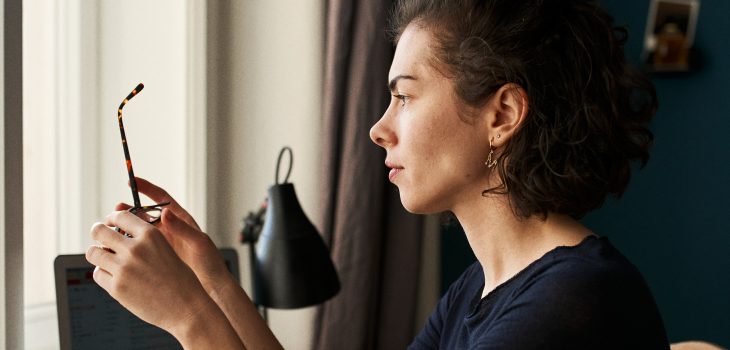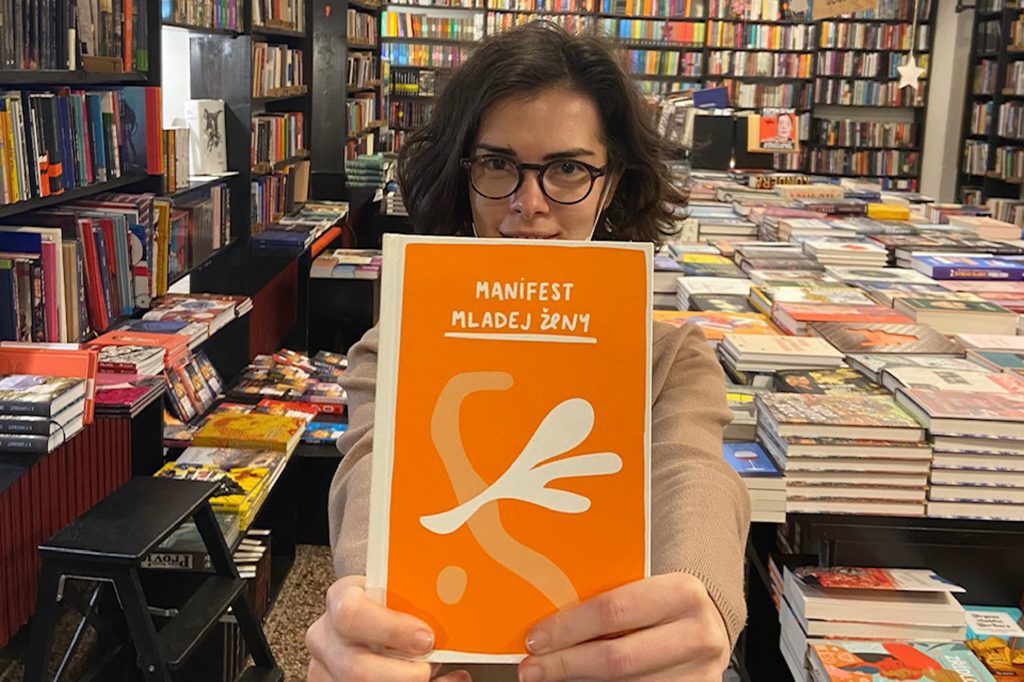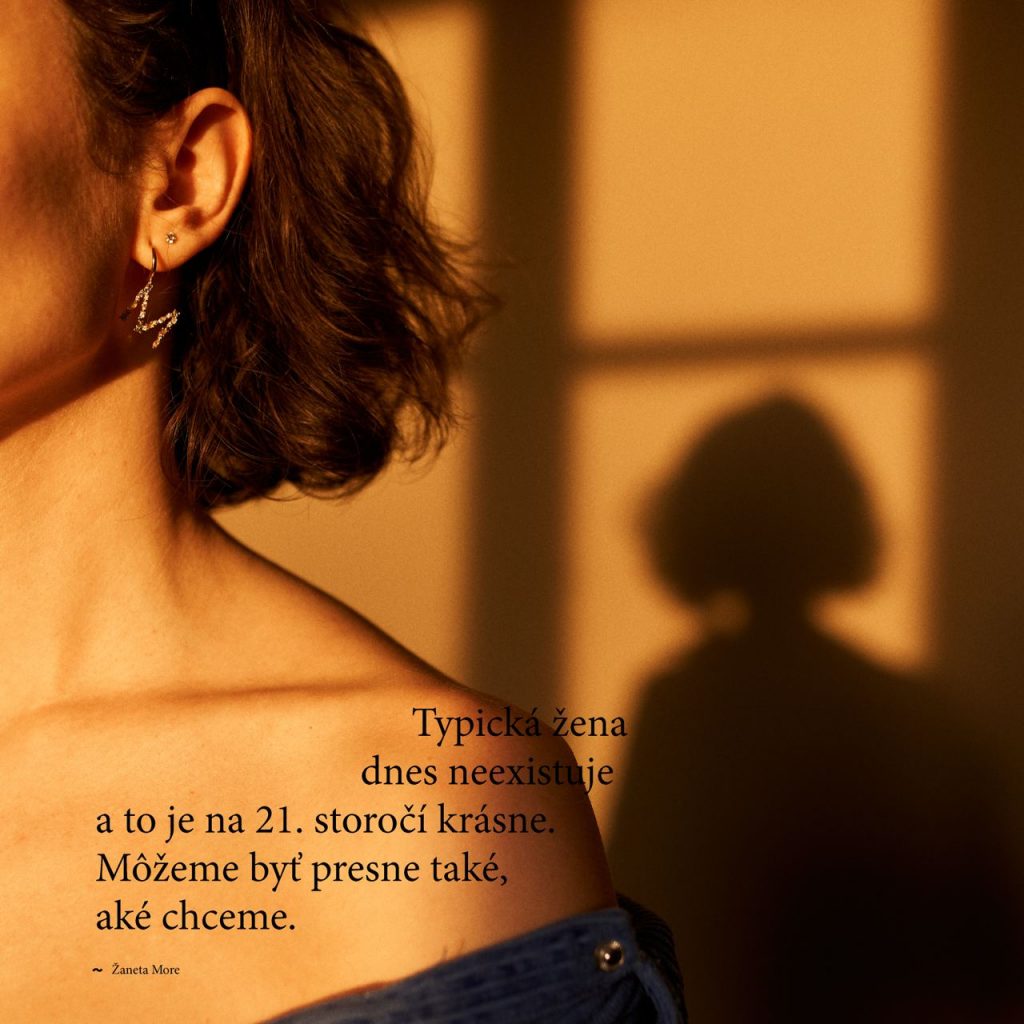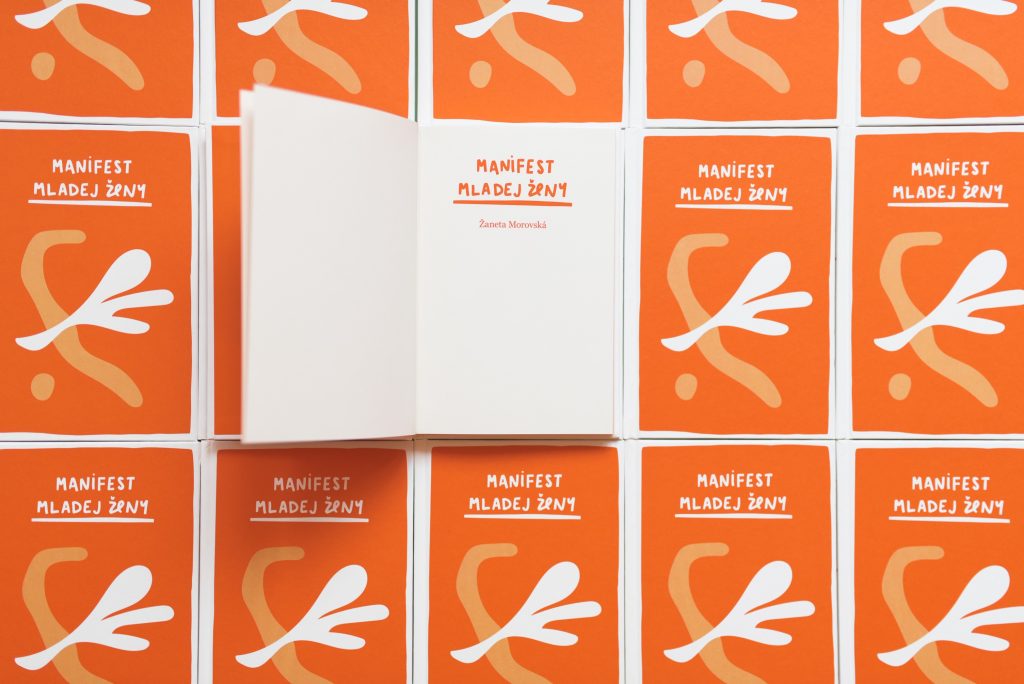 Slovakia
Slovakia
Žaneta Morovská – author of the Manifest mladej ženy,…
Žaneta, let’s start with your book “Manifest mladej ženy”: It is a fantastic book and has caused a stir on social media. Can you tell us bit more about it?
Thank you for describing it as fantastic! I am so grateful that the book has had such a positive response. Readers send me feedback and gratitude for writing such a book: many have told me they needed to read something like this.

The book is about the importance of not fitting into the ideas or expectations of society. Instead, try to fit into yourself. Get to know yourself; find out what you feel good at; and stay true to it. Above all, stay free.
I would like to emphasize that this book is a personal manifesto. It is based on my own experience and knowledge. I do not offer any instructions or manual on how to live a life. I only open horizons and encourage readers towards self-knowledge.
What motivated you to write the book? Where did the idea come from?
There were many motivations that had been accumulating for quite a long time. It was not easy to take the plunge; to reveal my dream to family and friends that I wanted to write a book. For the longest time I lived with the limiting belief that to be an author you must mature; experience life; reach a certain age. And that is not the only limiting belief I have had in my life: There have been many. Everyone has them; in every area of life.
I said to myself last year that I don’t want to be restricted any longer by my preconceptions of what is possible. I needed to stop trusting them, and that is only possible if you do the exact opposite. So, the book was created.
The book started out as being how to free yourself from the limitations of society. But by the end, I found that you cannot blame society: We are the ones to blame because we let those limitations penetrate our minds and our hearts.
I believe that women feel pressured by society to be perfect. Perfect woman; perfect employee or boss; perfect mother; perfect partner. And we if are not, we are rejected, judged, gossiped about and seen as a failure. How do you feel about pressures facing women?
By writing my book I found something key for my life: These pressures are not created by society! We create them ourselves by accepting them as the norm. We believe in some ideal image of a woman and decide to live according to this ideal. And that is the gateway to exhaustion, anxiety, instability, fear, doubt. In the book, I try to motivate female readers to create their own rules, norms and ideas about themselves and the wider world. And then stay faithful to them.

How did you get to a place of overcoming these hurdles and writing such a powerful book?
That is a good question: thank you again for considering the book “powerful”. The more I read it back to myself, the more I find weak spots and blame myself for not working on it longer. But these are the same old doubts. They want to take control of our minds… Our task… the task of every human being… is to find courage: Look for ways to dispel those self-doubts. It is necessary to learn how to cultivate mental strength to banish it from our heads and from our hearts. Good books and good teachers have helped me with that. There are many of them but I would like to particularly reference Eckhart Tolle and Vishen Lakhiani.
Do you feel there is enough support for girls and women to allow them to be themselves and to pursue their dreams in the same way society supports men?
No. But we are on the right track. In the words of historian Yuval Harrari, “unfortunately, society has always valued men and masculine qualities more. Most human societies have been patriarchal and valued men more highly than women. No matter how a society defined ‘man’ and ‘woman’, to be a man was always better. Patriarchal societies educate men to think and act in a masculine way and women to think and act in a feminine way, punishing anyone who dares cross those boundaries. Yet they do not equally reward those who conform. Qualities considered masculine are more valued than those considered feminine, and members of a society who personify the feminine ideal get less than those who exemplify the masculine ideal.”
I hope that in the 21st century this will no longer be the case. However, it must be emphasized that this depends on our attitude here and now. As women, we cannot expect society to suddenly appreciate us as much as it appreciates men when we, as women, do not have enough self-esteem to appreciate ourselves.
You had been working as a Marketing Director in Prague. How did you go from a high-level corporate job to author?
I have always tended to prefer art, culture and poetry. I just didn’t have the courage to pursue it. I had doubts about being good at it. I didn’t have an artistic background: I never wrote short stories or won literary competitions. But I always wanted to. The more I felt lost in my career at the time, the more my artistic self revolted.

Until one day I resigned and gave space to my heart; let it decide now what will happen to me. It was a risk and I didn’t know what awaited me, but that’s when things start to happen. Sometimes it really helps not to have a plan and just let things come to you. The book came to me, and of course, I went to meet “her”. But how exactly? What caused it? I do not know it. Maybe it came because I finally put myself and my needs first. My well-being.
If you could give one piece of advice to any girls or women reading this interview, what would it be?
We know that femininity takes many forms, many manifestations. I wish every woman to find her own, in which she feels good and then stays faithful to it.It may be difficult at first, but I think it’s the most important thing. I also wish every woman would have enough space in her life for art and creation: It doesn’t have to be a book or a painting. And last, but not least I wish every woman to be surrounded by inspiring women; to learn from them and then to make her own way: In freedom and love.
We are in the midst of the major global pandemic. What keeps you sane and motivated to keep working and growing?
Hope and faith. I am an eternal idealist and an optimist. I try to take from this situation the good that it brings us, and I admit with great humility that I am one of those lucky ones who has not been significantly marked by corona virus.
On the contrary, I think that if it wasn’t for corona, I wouldn’t have the necessary peace and space to write the book. I am a very extroverted and social creature, so whenever I can, I meet new people, I travel, I observe the world. This way I was forced to sit on my ass at home and write. Haha!
Another activity that keeps me sane is regular meditation and long walks in the park.
Do you feel women and girls are supportive enough of each other or do you think we need to teach the new generation to be less competitive?
I do not like to generalize, but from my experience and in my environment, I perceive great cohesion and a beautiful sisterhood among women. Maybe it’s because of my optimistic filter / glasses that I’m wearing, so I’m focusing more positively on it. Women can also have big egos, but I think their intuition can whisper to them louder: That when they support each other, they are much stronger, more determined and they can achieve the change they are striving for.
Would you say female authors have enough presence in Slovak literature?
I want to believe so. But I can’t express myself well in this, I don’t follow the Slovak literary scene.
In your opinion, what is one thing that every woman must do for a good and successful life?
I don’t like the word “must”. It goes against my philosophy of freedom. But let’s replace it by the verb “should” (although this is still not perfect).
So… Dear Woman, listen…
You should get to know yourself, accept yourself, overcome the fear of being you: Being authentic. And above all, try to cultivate tenderness each day.
As an author, what is the one book that changed how you see the world and that you can re-read over and over again?
A New Earth: Awakening to Your Life’s Purpose by Eckhart Tolle









